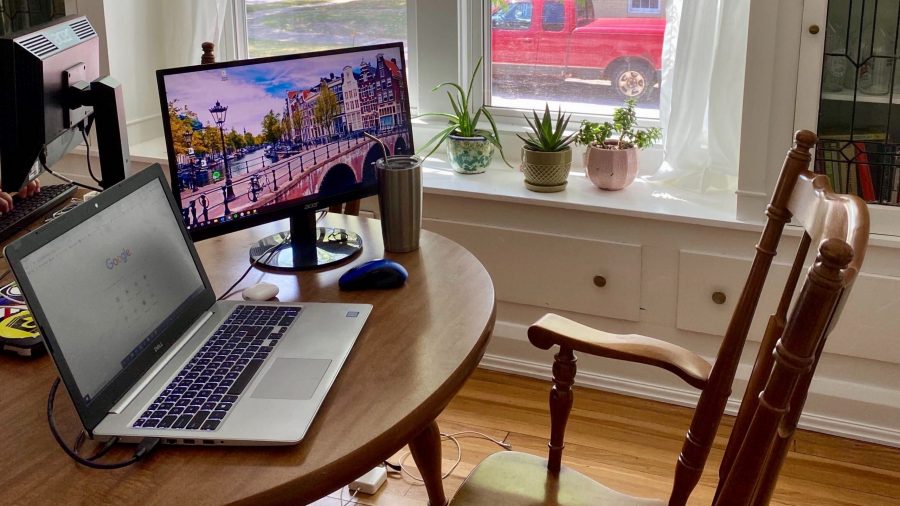In late March, when the COVID-19 pandemic arrived in the UK, many businesses had to adapt to a remote working environment. From creative agencies to corporate lawyers, working from home soon became the norm.
Remote working certainly isn’t for everyone, and some businesses have embraced the change more than others. However, in a world of time-consuming commutes and expensive office spaces, this new way of working has been a breath of fresh air for some businesses.
As a result, these firms have recently switched to remote working permanently – here’s why.
The seamless journey to remote working
Vicki, owner of G4 Guitar Croydon, was teaching guitar students in a physical setting pre-coronavirus. Once the pandemic hit, Vicki was quick to make the switch to remote working and is now permanently operating as a remote working business. She even found the switch opened up a new world of opportunities.
She told us: “We were able to transition very smoothly and most students and parents were grateful that we were continuing when so many other activities stopped. We’ve even taken on some new students from outside our old geographical location.”
Managing Director of Sleeping Giant Media, Anthony Klokkou, had been preparing for remote working ahead of potential Brexit travel disruption on the M20. Anthony told us this involved “moving the whole workforce to laptops and testing and amending our remote working practices and policies.”
As a result of COVID-19, it seems Sleeping Giant Media, like many other businesses, were able to seamlessly transition into remote working with a little preparation.
“We have seen that remote working can work well, for us at least, and have worked hard to keep communication high across the business, whilst supporting the cultural development that is happening,” Anthony said.
Does remote working need to be five days a week?
Just like the 9-5 grind, working from home full-time is not for everyone. Some employees have found they miss the office. Others would like the opportunity to utilise both settings from time to time.
Sleeping Giant Media is planning to keep its office space, but its function will change. It will become “a place for collaboration, socialising and client meetings, rather than day to day working for all,” Anthony said.
Hotel brand, OYO, has also enforced a ‘work from anywhere’ policy to support workers during these strange times. The start-up announced its head office staff have been working from home since late March. Some will continue to do so as a result of increased employee productivity and efficiency.
Employees will be given the choice of either working from home or from OYO’s office in London. The start-up will even fund initial set-up costs up to £100.
What are the advantages and disadvantages of remote working?
A survey conducted by research company, Gartner, found that 74% of CFOs were planning to move their office-based workforce to permanent remote working positions post-coronavirus. The biggest reason for this was the cost-effectiveness of remote working.
With a remote working plan in place, you could save on:
- Office space rent
- Bills and cleaning costs
- Food and incentives for employees
- Travel costs – for your business and employees
Remote working could also save your employees time with reduced commutes and extend your company’s operational hours.
However, some employees may find they are less productive at home. Others worry about missing face-to-face contact with other employees.
How can remote teams communicate effectively?
Communication is key when it comes to making the switch to remote working. Whether it’s regular phone calls or video chats, consistent communication is vital for maintaining relationships within a remote workforce.
Technology without a doubt plays a significant role. With soaring demand for video and conference call technology, remote businesses will have to find what works best for them, just like G4 Guitar Croydon did.
Here at WHYPAY?, our conference call technology is completely free. There are upgrade options available, including advanced features like call recording and custom branding. If your business is preparing to make the switch to remote working long-term, consider adding WHYPAY? to your bank of communication tools. We have plenty of information about our conference call features to help you make that decision.
Is remote work the future?
For some of the businesses we spoke to, remote working was a permanent venture – at least for now. Returning to work doesn’t appear to be as clean-cut as 9am – 5pm, 5 days a week. Some of the businesses we spoke to claimed they would offer a flexible working environment going forward, with remote working days and office days interchanging.
“I don’t think offices are things of the past,” Anthony Klokkou told us, “but their role in a lot of businesses will change. They will become places of collaboration for businesses like ours.”
Are you ready to make the switch?
We’re here for you and your business as you make the transition to part-time or full-time remote working business. Check out our conference call services to find out more about our free and paid plans.
You’ll also find plenty of useful remote working resources on our blog to help you along the way. Don’t forget to take a look at our conference call reviews to see how businesses like yours have made the switch successful.
Should you have any questions about WHYPAY?’s support for remote working teams, please do get in touch by emailing [email protected], or use the live chat feature on this page.
Photo by ChoiceLocal on Unsplash




